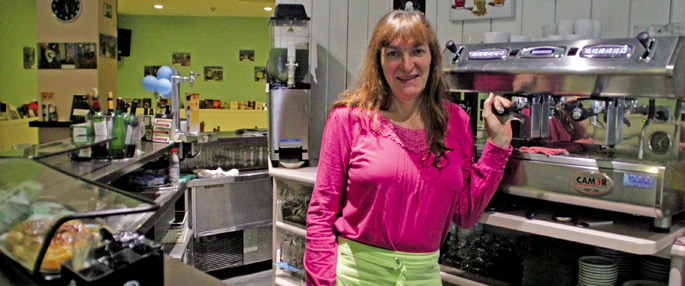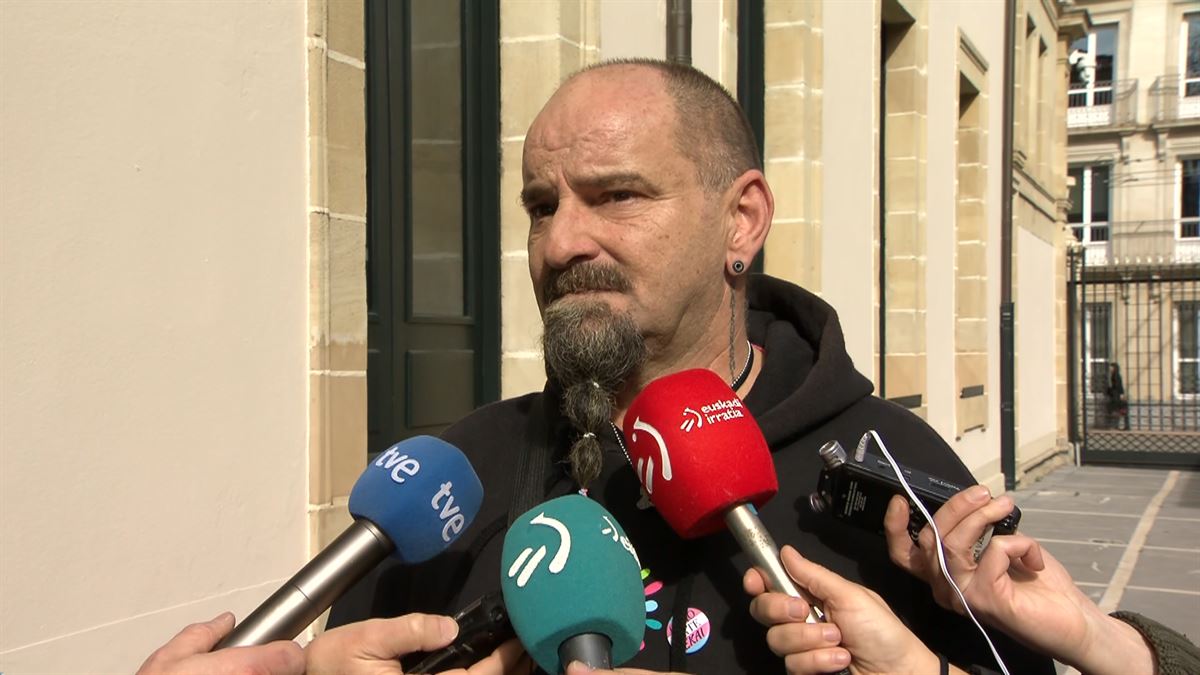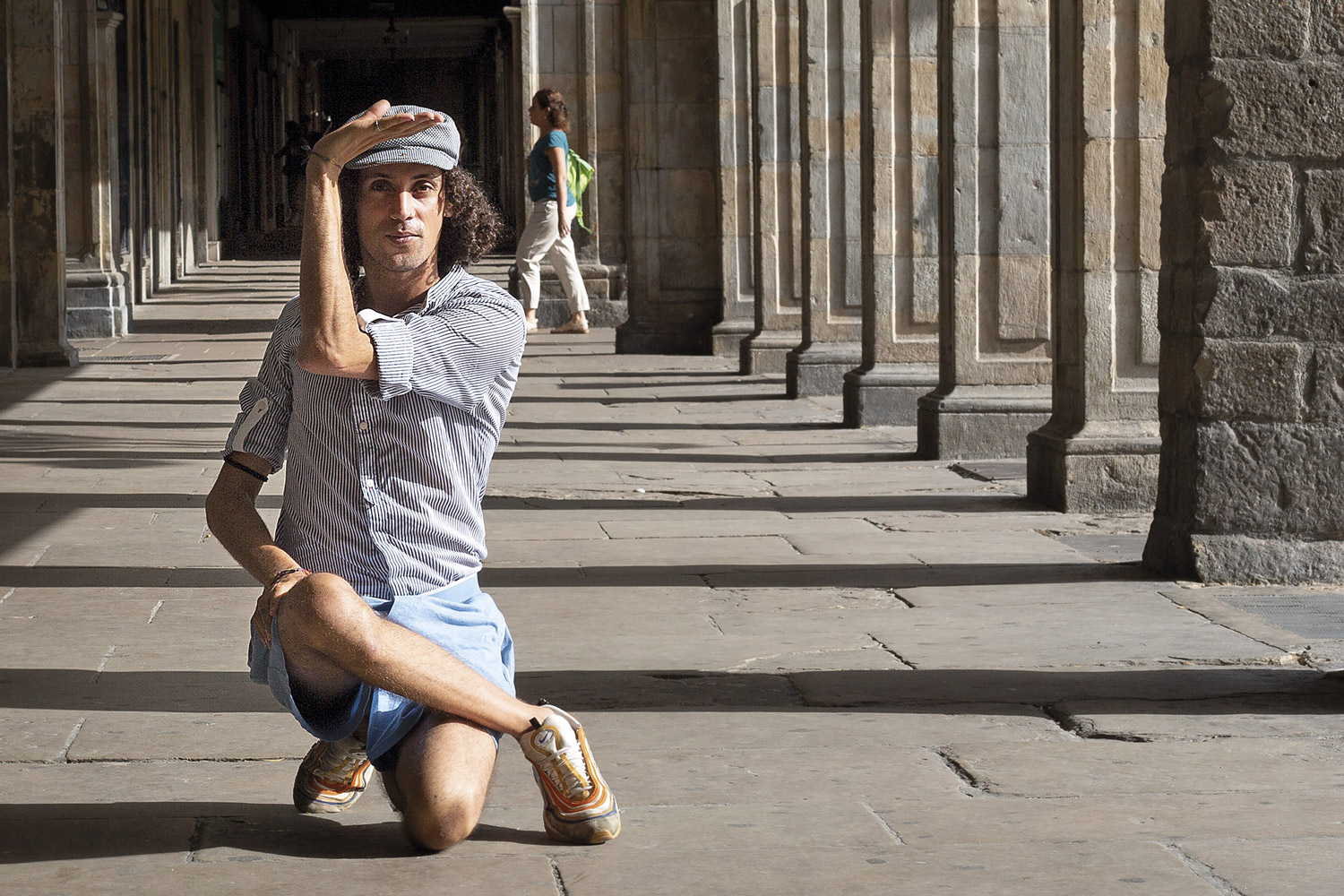“The transsexuality law is very avant-garde in Navarre, but it is yet to be developed”
- The former priest Alizia Izal (Villava, 1959) has lived from one side to the other around the world until a few years ago. At the turn of Chiapasti, when he settled in Estella, he began to untie the knot of ever: the woman who hid in the body of man.

What do you think of the Navarre law defending the rights of transsexuals?
It is a law made with great care and with a good knowledge of the situation. Our treatment allows us to continue through Osasunbidea. In Navarra we have the Transsexuality and Intersex Unit that provides us with the psychological and endocrinological support we need. Hormonal medications are administered to us by themselves, and interventions also help us, although to do baginoplasty, for example, we have to wait three years. And the petition also has to be made after 18 months of hormonal action. In short, we must wait five years for the operation to take place in Malaga. That's why some of us turn to private medicine. In Thailand you are operated for 8,000 euros. This country is the paradise of these kinds of operations and they have good professionals. But you have to raise that money. You can also go to Barcelona, to the private clinic, and pay more than 20,000 euros. If it wasn't for that law, I wouldn't have gotten it. This is a very avant-garde law, but it is still to be developed, as six years after its adoption only the health part has been addressed.
Is the number of transsexuals in Navarre known?
You can never know what percentage of the population is transsexual. It is a taboo subject, totally, very hidden. For years we ourselves have relinquished true identity. I knew what was happening to me, but I couldn't accept it, what were they going to say in my family, around me? It's something that doesn't communicate, it's crazy, it's dangerous for society. And if you want to go on with your work, don't say anything. I've been aground because the head of the company didn't accept my transsexuality. As for female transsexuality, in this male world, society cannot accept that it has gone from being a man to being a woman, that is, that there has been “lowering of grade”.
Why didn't you make the decision before?
I've been very nomadic. When I was 20, I went to Madrid and when I was 23 to South America. In 1995, the Mexican police and military arrested me, removed me and expelled me. I went home, and as Chiapaska kept moving, I went for a walk. I decided to stop a little bit later. I stopped being a priest and then I had a need for life or death: to live as I was. In America it was said that the urgent does not leave room for the important. And when I was nomadic, the most important thing was the next minute, that I would keep alive and the ones around me.
How did the last decision to be a woman come about?
With an extraordinary force, like a spring locked in a box, one of those that opens and comes out jumps. I was one of the first clients in the Transsexuality Unit. And it all happened by chance. I had a thyroid problem and my doctor recommended that I go to the endocrinologist and I took the opportunity to inform him of my concerns about my sexuality. I believe in providence, that some higher forces have helped me along the way. The problem of the thyroid had to be explained in order to face that situation. Otherwise, if I had hurt my foot, I would have directed myself to the podiatrist... I started the process in 2011, in 2013, I was able to change my name and officially introduce myself as a woman, and so I kept taking steps.
What do you feel when you wake up in the morning and see a woman in the mirror?
I am happy and I feel better to move forward. I've always been pretty happy, but there was something inside of me that was a lie, and I knew it. Now that doesn't exist. I'm more complete. I look at the mirror and say to myself: “I’ve managed to be a woman!” You know what you are, but if the world doesn't accept you as you are, you can't live well.
What's left of the person who chose to be a priest?
I haven't changed much, and I haven't changed my ideas much. I live in spirituality, even though the Catholic Church has disturbed me. I'm a believer, but not a practitioner. I care about my relationship with God and not what I can have with the Church.
What will the Pope think of you?
It once occurred to me to go and talk to him. However, I do not like to put people in complicated situations. And I don't want to complicate your pontificate anymore, which is too complicated. If I had the opportunity, I would say: For the Church I am still a priest, I have not yet been given a dispensation. In addition, I'm a woman, and worse, my partner is also a woman, so I'm a lesbian. What a solution we give to this!
How do you think they would take it in the indigenous chols communities of Chiapas?
I don't think I had any problems. In the communities that I walked, there were people who were called "homosexuals," or "different," but they didn't despise them. There, for example, I met a young man who worked in groups of girls, where the division between the sexes is very evident in everyday activities. Well, that young man felt better with women and was better involved in community activities. You would admit, there was no problem. If I go back to the communities, I guess it's going to cost you a little bit at first, but you're going to let me. I don’t know if the ‘ladinos’, which are not indigenous, would be the same thing.
Sabanillako (Chiapas, Mexiko) parrokian apaiz lanetan zebilen, chol indigenen lurraldean, ejertzitoak eta poliziak beste bi apaiz atzerritarrekin batera atxilotu eta Mexikotik kanporatu zutenean, afera politikoetan esku hartzea egotzita. Urte eta erdi lehenago, 1994ko urtarrilaren batean, komunikabideek Guatemalarekin muga egiten duen Mexikoko lurralde pobre horri erreparatu zioten, Ejertzito Zapatista hemen altxatua baitzen, Marcos komandante-ordea ikur ezagunena izan zuelarik.
Nafarroan berriz finkatu zelarik, Honduras eta El Salvadorren ere ibilitako apaiz nomada honen bizimodua egonkortuz joan zen, eta Elizarekin lotzen zuen soka hautsi, harik eta “ikaragarrizko indar batekin” bizitzan edukitako kontraesanik handienak eztanda egin zion arte: emakume zen gizonaren gorputzean. Orain, Nafarroako Transexualitatearen Legeari esker, burua eta gorputza uztartzea lortu du eta Lizarrako Café con letras kulturgune eta kafetegiaren kudeatzailea da. Alizia Izal du izena eta, goizero, ispilura begiratu eta zera esaten dio bere buruari: emakume izatea lortu dut!

























